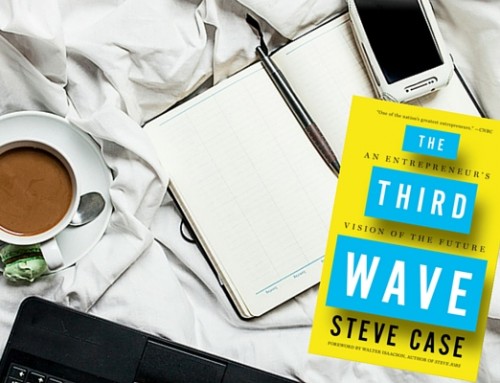In their book, Absolute Value: What Really Influences Customers In The Age of (Nearly) Perfect Information, Emanuel Rosen and Itamar Simonson explain a new approach to planting seeds to build awareness for a new product or service. Their idea is that the gradual adoption, trickle-down approach that started when Moses went to see God is less applicable today because online information is getting fast, free, and perfect.
For example, people can use websites like CNET and Amazon to read reviews hours after a product’s introduction. Innovators, early adopters, and early majority users can express their opinions a few minutes after it ships—and because of leaks, even before it ships.
Information no longer trickles down; it disperses fast, free, and far. For example, when it comes to new books, who still waits to read a New York Times review before buying a book from Amazon?
The fast, free, and perfect nature of information can turn marketing upside down:
- Influentials matter less. Many people can evaluate product and spread their opinions immediately. Influentials still matter for reporting that something shipped but not necessarily for inspiring purchase or trial. Nobodies are the new somebodies!
- Brands are less important. When information was incomplete and slow, people depended on a brand’s imprimatur for quality assurance. In the book business, the average number of stars on Amazon and the first few comments that strangers have posted are more important and visible on Amazon than the publisher’s name.
- Loyalty is transient. In a perfect world the manufacturers of what you bought in the past produce great stuff in the future. In the real world, sometimes they do and sometimes they don’t. For example, people may love the sharing features of Facebook but never use its email service. All together this means that merit is the new marketing. Here’s how to thrive in this world:
- Abandon the fantasy of control. Omniscience and omnipotence are illusions. You can’t know who can and will help you. Nor can you control people with your marketing and advertising. So blast your product out, and then flow with the go.
- Plant many seeds. Plant fields of flowers, not flower boxes. This is a strategy of big numbers: the more seeds, the more flowers. You never know which seed will turn into a sunflower.
Some people you reach through influential, top-of-the-pyramid methods, and others you reach by planting a thousand seeds. As with most entrepreneurial topics, there isn’t a right and wrong—there’s only what works and what doesn’t, and you can only find out what works by experimentation.
This post is a tiny part of Guy Kawasaki’s latest book, The Art of the Start 2.0. Read it and reap…


Thank you. That’s a nice simple idea that’s easy to try out. It takes the pressure off from finding ‘THE’ single best way. Eddie
This is an awesome intro into the market place and a must read for anyone looking to start a new business!
Hello,
This is an awesome intro into the market place . can you control people with your marketing and advertising. So blast your product out, and then flow with the go.